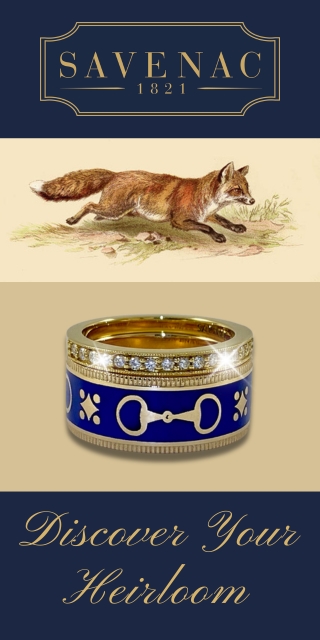tiverton foxhounds
Matthew Cook Is New Farmington Huntsman
“My first knowledge of foxes began with hating them,” said Matthew Cook with a chuckle. "Working as a gamekeeper they were a pest.” / Cathy Summers photo“New” is hardly the word to use when writing about the sport of foxhunting in general, and even harder to use with a club as dedicated to tradition as central Virginia’s Farmington Hunt Club. Change is always a challenge! But our new huntsman Matthew Cook has been changing things all around since he arrived in Free Union three years ago—raising a new level of hunting sport with a growing list of firsts.
Cook entered Farmington hounds in the Virginia Hound Show in May, 2014 for the first time; he took a carefully picked few hounds to meet prospective foxhunting juniors at the local 4H club last spring, and he accompanied his daughter Pippa along with a group of Farmington juniors to compete for the first time ever at the finals of the Junior North American Field hunting championship in Lexington, Kentucky just last October. Most recently, he prepared Farmington hounds to compete in a foxhound performance trial at the Belle Meade Hunt in Thomson, Georgia in January 2017.
How Long Can a Red Fox Live?
 Mary Marks photo
Mary Marks photo
I believe that the ripest old age a tame fox might achieve is twelve. A wild, country fox could reach about eight. The governing factor, of course, apart from predators, is the fox’s teeth. No teeth, no food, no energy, and the end will be near, perhaps by scavenging dog or internal parasite—a death neither quick nor noble, and without Nature’s own equivalent of the National Health Service.
When I was hunting the Tiverton in Devon, the oldest fox caught by my hounds was aged six, according to that great naturalist Sir Newton Rycroft. It was the Tiverton’s first hunt in the New Forest, in 1975, and the fox’s incisors were long, very curved, and extremely dark—which prompted the discussion. The longer and more curved the teeth, the older the fox. Bob Street, who had disappeared into a bog during the excitement of the run, said that in forty years’ hunting it was one of the oldest he had seen hounds catch.

















